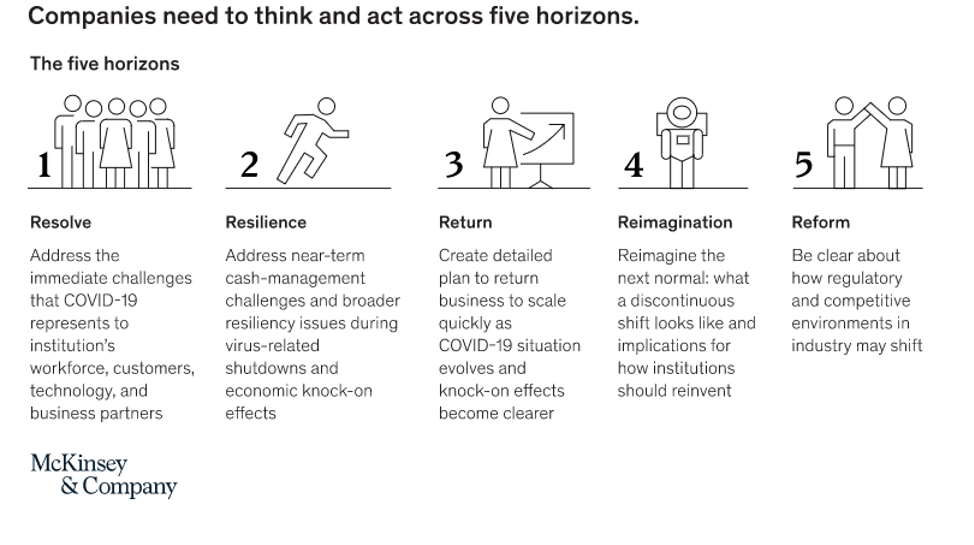16 April 2020
Ms Gouri Betigeri, Country Manager ANZ, Life Science, Clarivate
On 30 March 2020, Prime Minister Scott Morrison announced that the Commonwealth Government will roll out a $130 billion wage subsidy program, called the JobKeeper Payment – a temporary subsidy aimed to assist businesses, charities and employees who have been significantly impacted by COVID-19. $13 million to fast track development, via two MRFF grant streams, $8 million to identify and develop antiviral therapies for people infected with COVID-19, and $5 million for clinical trials to better treat and manage the fatality risk of COVID-19 patients with severe acute respiratory distress. This is in addition to $2 million already allocated from the MRFF for research into a vaccine against COVID-19. Additionally, in late March, our Health Minister Greg Hunt announced that CSIRO would receive a $220 million funding injection to upgrade its facility in Geelong to help fast-track infectious disease research and work on a vaccine.
Brandon Capital’s Dr Chris Nave, AusBiotech CEO Lorraine Chirioiu and ANDHealth CEO Bronwyn De Grice have all expressed their concerns for our biotechnology and medical technology sector. The JobKeeper program and other stimulus is currently not sufficiently directed to the biotech sector1. One major early concern of the above stakeholders is that COVID-19 will impact the circulation of brains trust in our local pre-revenue companies. Many local companies are in the process of standing employees down and sorting out redundancies. When one looks closely at the eligibility criteria of the JobKeeper program, pre-revenue companies will be reviewed on a case by case basis. Alex McCauley, CEO of StartUp Aus, recently stated on Twitter that he “encourage[d] pre-revenue startups who have ‘significantly curtailed operations’ due to COVID to register intent to apply for JobKeeper and develop a strong case showing how you’ve been impacted” 2. Companies await more information on this and how best to characterise their COVID-19 impact.
With biotech and medtech at the forefront of the COVID-19 response, particularly with clinical trials, we do need a cogent, specific response from the government. Every day is different, and we are in the depths of ‘wicked problems’ this outbreak has triggered.
The Big Ratchet, a book written by Ruth DeFries, is an academic look at wicked problems and new normals throughout history3. DeFries investigates and expounds a model on how humans have survived great challenges, and have then rapidly innovated to survive and thrive. This is through a series of ‘ratchets, hatchets and pivots’ throughout the centuries.
As a professor in ecology and sustainability, DeFries speaks through the lens of societal challenges and benefits using examples including the initial synthesis of fertilisers. In the early 20th century, nitrogen gas was taken from the air and turned into nourishment for crops. This solution was revolutionary in agriculture, with civilisations no longer dependent on organic fertilizer supplies, and holding the ability to craft supplies from chemical sources. This ‘ratchet’ was ultimately followed by a ‘hatchet’. The production of synthesized fertilizer led to the need for pesticides like DDT, which were later found to be toxic. This threatened agriculture and the health of vulnerable populations. Countries thus pivoted’ to alternative vector and non-vector controls to sustain food technology. This is an example of a ‘pivot’, where society looks for innovations to address a newly created problem. Following this, the cycle of hatchets, ratchets and pivots continues, and progress ratchets up another notch.

The same model could be considered in our present circumstances. We are in the realm of a hatchet (COVID-19) where we need to focus on the wicked problem, derive and pivot to sustainable solutions. These innovative solutions need to support human-centric enterprises such as our local biotech and medtech sector.
In hatchet mode, we need to formulate prescriptive plans to address and mitigate the challenges. McKinsey recently formulated an early call to action for businesses entailing ‘Five Horizons: Resolve, Resilience, Return, Reimagination, and Reform’4
In the milieu of COVID-19 to stay resilient, government decisions need to be centered around injecting tailored funds into our otherwise recently-burgeoning SME sector.
In-between hatchets and pivots pre-revenue, companies would do well to seek evidence-based approaches to support all five horizons. The need for up-to-date curated data and insight to make decisions is warranted in forging new paths via planned pivots.
Ms Gouri Betigeri, Country Manager ANZ, Life Science, Clarivate
Contact Clarivate for life science company, deals, regulatory information across R&D, biotech, digital health and MedTech.
- Emma Koehn, The Age, April 9 2020, Health Tech could suffer in COVID-19 capital crunch investors warn.
- McCauley, (2020) April 8, Available (https://twitter.com/alexmccauley/status/1247787161002192897) Accessed: 16 April 2020.
- Ruth DeFries, How Humanity Thrives in the Face of Natural Crises (Basic Books, 2014).
- McKinsey online, COVD19 Implications for business, Executive Briefing March 30 Accessed April 13



